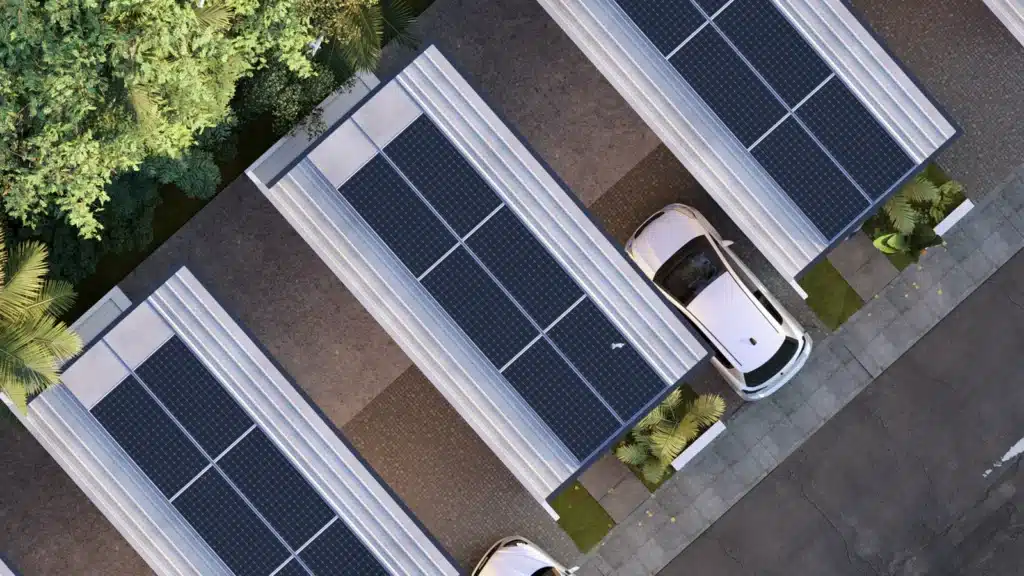Urbanization in China
Urbanization refers to the growth of cities and the increase in the number of people living in them. As more and more people move to cities, the demand for resources like energy and water also increases. This is because cities require a lot of energy and water to keep things like buildings, transportation systems, and industries running smoothly. However, as we use more and more of these resources, it can have negative impacts on the environment.
Effects of Urbanization on Energy Consumption
Urbanization impacts energy consumption. As cities grow and more people move into them, the demand for energy increases. In fact, cities use more than two-thirds of the world’s energy, according to the International Energy Agency (IEA).
As cities grow, so does the number of buildings. Buildings require electricity to power their lights, heating, and cooling systems. In fact, buildings account for about 40% of the world’s energy consumption, according to the IEA. This means that as more buildings are constructed in cities, the demand for energy also increases.
Urbanization often leads to the growth of industries, which also require energy to power their operations. Industries such as manufacturing, mining, and agriculture require large amounts of energy to operate their machinery and equipment. As more industries are established in cities, the demand for energy also increases.
All of this energy consumption has negative impacts on our environment. Burning fossil fuels to generate energy releases greenhouse gases into the atmosphere, which contribute to climate change. Extracting and transporting fossil fuels can also harm ecosystems and pollute air and water.
So, what can we do to minimize the impact of urbanization on energy consumption? One solution is to invest in renewable energy sources, such as solar energy and wind power. These sources of energy are sustainable and do not release greenhouse gases into the atmosphere.
Effects of Urbanization on Water Consumption
The demand for water increases in cities as people move there. Houses and buildings require water for their plumbing, cooling systems, and landscaping. In fact, buildings account for about 12% of the world’s water consumption, according to the United Nations. This means that as more buildings are constructed in cities, the demand for water also increases.
Industries also require water to power their operations. Industries such as manufacturing, mining, and agriculture require large amounts of water to operate their machinery and equipment. As more industries are established in cities, the demand for water also increases.
Water consumption has negative effects on our environment. In some regions, urbanization has led to the depletion of groundwater resources, which can cause problems like land subsidence and saltwater intrusion.
We can, however, minimize the impact of urbanization on water consumption. We need to do water conservation. We can invest in water-efficient technologies and practices. This can include low-flow showerheads, drip irrigation systems, and water-efficient appliances. Another solution is rainwater harvesting, which can help reduce the demand for freshwater sources.
Strategies to Reduce Energy and Water Consumption in Urban Areas
As cities continue to grow, the demand for resources like water and energy increases. However, there are many strategies that can be implemented to reduce the consumption of these resources in urban areas.
Installing water-efficient technologies like low-flow showerheads, toilets, and faucets can help reduce the amount of water used in buildings. Additionally, implementing water-efficient landscaping practices like drip irrigation and planting drought-resistant plants can help reduce the amount of water used for outdoor purposes.
Improving the energy efficiency of buildings can help reduce the amount of energy needed to power them. This can be done by using energy-efficient lighting, improving insulation, and installing energy-efficient appliances. Investing in renewable energy sources like solar and wind power can help reduce the reliance on fossil fuels, which contribute to climate change.
Role of BillionBricks in Reducing the Impact of Urbanization on Energy and Water Consumption
BillionBricks is a climate-tech venture that aims to provide affordable housing solutions to underprivileged communities. However, we also want to contribute to reducing the impact of urbanization on energy and water consumption.
One of our strategies to attain this is building sustainable and energy-efficient homes. We use a design approach that incorporates passive solar heating, natural ventilation, and rainwater harvesting systems to reduce energy and water consumption. Additionally, we focus on building homes in areas where they can have the most impact. We prioritize building in urban areas where the demand for resources is highest and where communities are most vulnerable to the negative impacts of urbanization.
BillionBricks plays a critical role in reducing the impact of urbanization on energy and water consumption by providing sustainable and affordable housing solutions and advocating for sustainable practices.
You can email us at hello@billionbricks.org to know more about our projects.
Sources:
-
International Energy Agency. (2021). Cities. https://www.iea.org/reports/empowering-cities-for-a-net-zero-future
-
United Nations. (2021). Sustainable Development Goal 7: Affordable and Clean Energy. https://www.un.org/sustainabledevelopment/energy/
-
United Nations. (2021). Sustainable Development Goal 6: Clean Water and Sanitation. https://www.un.org/sustainabledevelopment/water-and-sanitation/
-
International Energy Agency. (2022). Energy Efficiency. https://www.iea.org/reports/energy-efficiency-2022
-
United Nations. (2021). Sustainable Development Goals. https://www.un.org/sustainabledevelopment/sustainable-development-goals/
-
United Nations. (2021). Sustainable Urbanization. https://www.un.org/development/desa/dpad/wp-content/uploads/sites/45/18_urbanization.pdf





